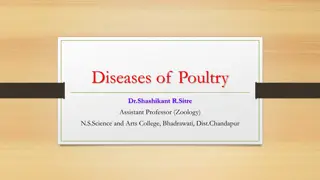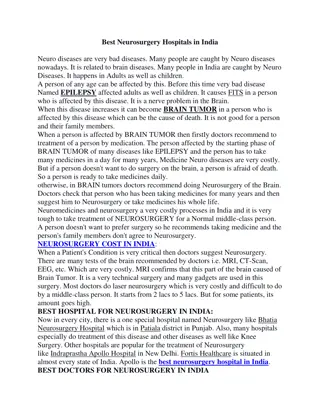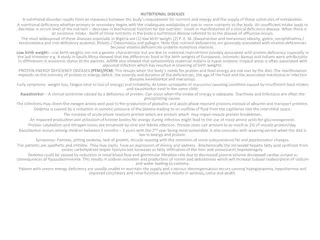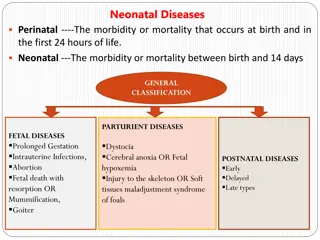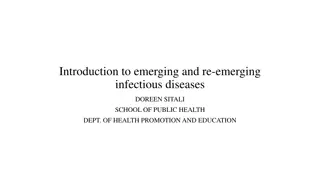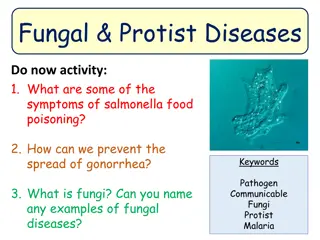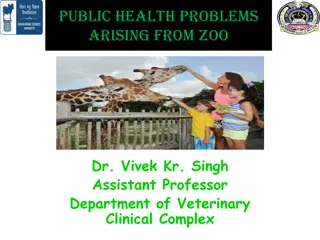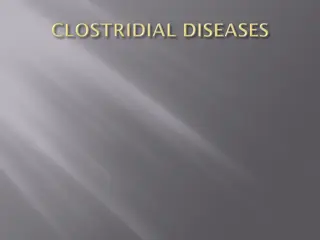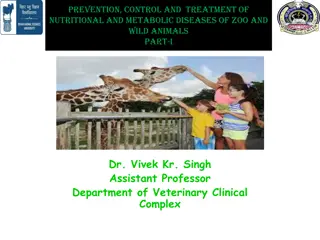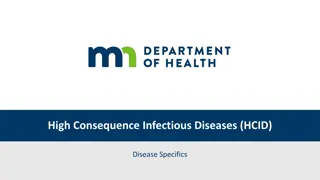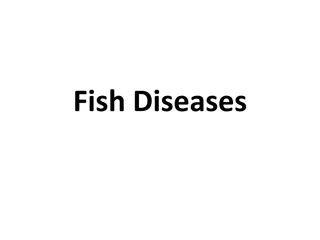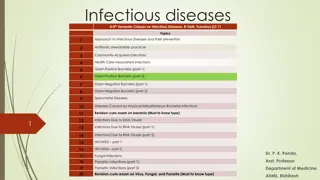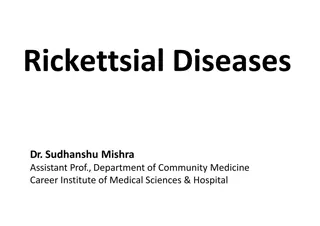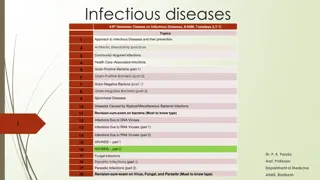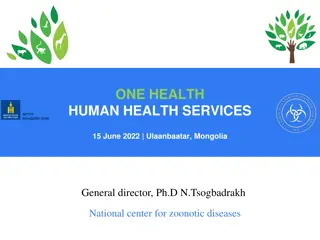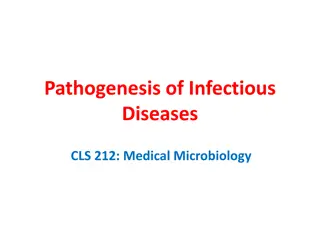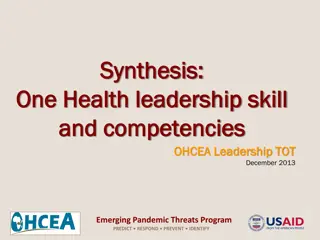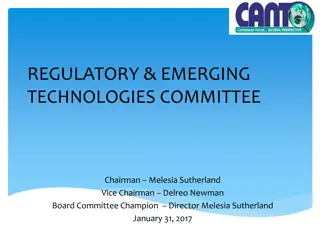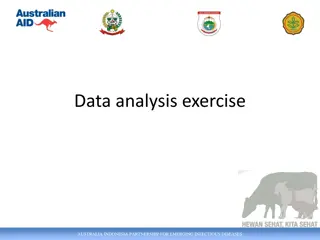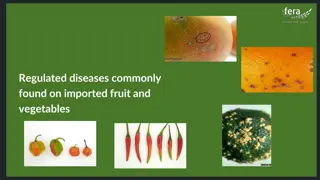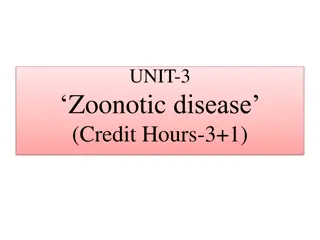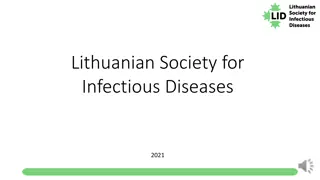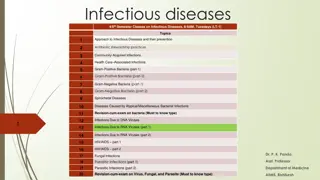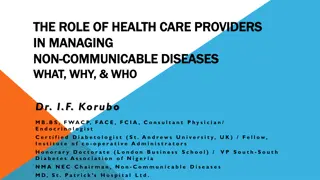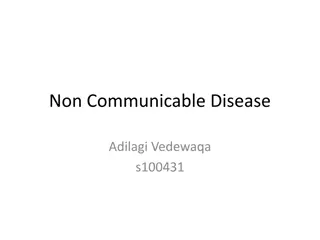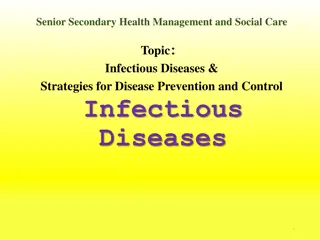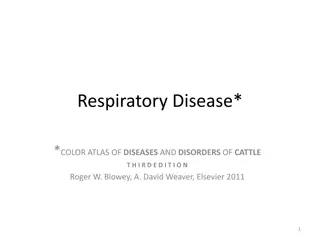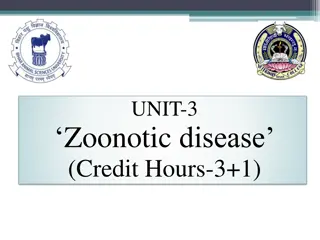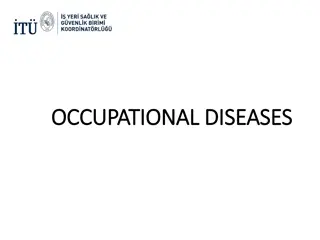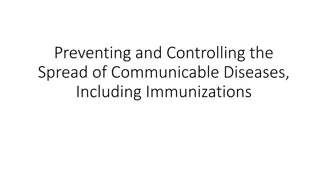Study Materials for Learning about Diseases and Telling Time
Dive into a collection of study resources covering test corrections, news updates from China, new vocabulary related to diseases, and report writing tasks. Explore new words, grammar rules for telling time, and objectives for each day of the week. Get insights on recent developments in China, includ
0 views • 13 slides
READ⚡[PDF]✔ Emerging Space Powers: The New Space Programs of Asia, the Middle Ea
\"COPY LINK HERE ; https:\/\/getpdf.readbooks.link\/B004NNUV54\n\n[READ DOWNLOAD] Emerging Space Powers: The New Space Programs of Asia, the Middle East and South-America (Springer Praxis Books) | Emerging Space Powers: The New Space Programs of Asia, the Middle East and South-America (Springer Pra
1 views • 6 slides
18th IEEE International Conference on Emerging Technologies at FAST-NUCES Peshawar Campus
The 18th IEEE International Conference on Emerging Technologies will take place at FAST National University of Computer and Emerging Sciences, Peshawar Campus on 06/07 November 2023. The conference will cover presentation topics including introduction, literature review, problem statement, methodolo
0 views • 4 slides
Overview of Poultry Diseases and their Causes
Poultry diseases caused by viruses and bacteria are a significant concern for poultry farmers. Viral diseases like Ranikhet Disease, Fowl Pox, and Avian Leucosis can have high mortality rates and severe symptoms. Bacterial diseases such as Tick Fever, Tuberculosis, Fowl Cholera, and Infectious Coryz
2 views • 12 slides
Business Fundamentals and Emerging Technologies: Overview and Assessment
Providing an overview of Business Fundamentals with Emerging Technologies and Business Law, this content covers various topics such as sectors of the economy, stakeholders, globalisation, emerging technologies, workforce diversity, artificial intelligence, big data, ethics, legislation, cyber securi
3 views • 15 slides
Periodontal Treatment Considerations for Medically Compromised Patients
Patients with significant medical conditions may require special considerations for periodontal treatment. Medical issues such as hemorrhagic disorders, renal diseases, liver diseases, pulmonary diseases, infectious diseases, pregnancy, medications, and cancer therapies can impact oral health and tr
1 views • 87 slides
Best Neurosurgery Hospitals in India
Neuro diseases are very bad diseases. Many people are caught by Neuro diseases nowadays. It is related to brain diseases. Many people in India are caught by Neuro Diseases. It happens in Adults as well as children.\nA person of any age can be affected by this. Before this time very bad disease Named
1 views • 2 slides
Overview of Nutritional Diseases and Disorders
Nutritional diseases arise from imbalances between the body's nutrient and energy requirements and their supply. Nutritional deficiencies can lead to clinical diseases, while excessive intake can result in diseases of affluence. Common nutritional disorders include low birth weight, PEM, obesity, go
4 views • 6 slides
Emerging Leaders Alliance - Empowering Engineering and Scientific Leaders
The Emerging Leaders Alliance (ELA) is a collaborative effort of engineering societies providing leadership training for emerging leaders. Supported by the United Engineering Foundation, the ELA program aims to develop a new generation of engineers equipped with both technical and non-technical skil
0 views • 11 slides
Neonatal Diseases
Neonatal and postnatal diseases in livestock, with a focus on perinatal, neonatal, and postnatal stages. It covers common classifications, causes, and risk factors associated with these diseases, particularly focusing on neonatal diarrhea (Calf Scour). The content delves into noninfectious and infec
0 views • 33 slides
Understanding Emerging and Re-emerging Infectious Diseases
Emerging and re-emerging infectious diseases pose significant challenges to global public health, with factors such as increased human-animal contact and microbial resistance contributing to their spread. This presentation explores the definitions, examples, and impacts of these diseases, emphasizin
0 views • 22 slides
Understanding Fungal and Protist Diseases: Impacts and Prevention
Fungi and protists play significant roles as pathogens, causing diseases in both humans and plants. Fungal diseases like athletes foot and protist diseases like malaria can have serious impacts on health. Control measures such as understanding symptoms, spread mechanisms, and prevention strategies a
0 views • 10 slides
Understanding Public Health Risks Associated with Zoos and Wild Animals
Zoos and wildlife parks serve as hubs for public recreation and education but can also pose public health risks due to potential transmission of zoonotic diseases by veterinarians who work closely with wild animals. Approximately 61% of infectious agents affecting humans are zoonotic in nature, with
0 views • 15 slides
Overview of Clostridial Diseases Caused by Clostridium Bacteria
Clostridial diseases are caused by bacteria of the genus Clostridium, which are anaerobes commonly found in soil, feces, and healthy animal tissues. These bacteria can lead to various diseases in animals such as black quarter, gas gangrene, necrotic dermatitis, and more. Understanding the different
0 views • 55 slides
Managing Nutritional and Metabolic Diseases in Zoo and Wild Animals
The prevention, control, and treatment of nutritional and metabolic diseases in zoo and wild animals are essential for maintaining their health. These diseases, such as rickets, osteoporosis, osteomalacia, and fibrous osteodystrophy, can result from imbalances in dietary nutrients and metabolic dera
0 views • 10 slides
Understanding High Consequence Infectious Diseases (HCID)
High Consequence Infectious Diseases (HCID) encompass serious illnesses like Middle East Respiratory Syndrome (MERS), Ebola Virus Disease (EVD), and more. Patient screening for symptoms is crucial, and HCID is defined as diseases with high mortality rates and potential risks to healthcare personnel.
0 views • 70 slides
Understanding Fish Diseases and Health
Fish diseases and health are essential aspects of aquatic life. Diseases can be infectious or non-infectious, causing impairments to the normal state of fishes. Recognizing symptoms and signs of diseases is crucial for diagnosis and treatment. Overall, maintaining the health of fishes is vital for t
0 views • 21 slides
Infectious Diseases 4/5th Semester Classes: Approach & Prevention
Infectious Diseases class focuses on various topics including Antibiotic Stewardship Practices, Community-Acquired Infections, Gram-Positive and Gram-Negative Bacteria, Spirochetal Diseases, Diseases Caused by Bacterial and Viral Infections, HIV/AIDS, Fungal and Parasitic Infections. The class also
3 views • 30 slides
Overview of Rickettsial Diseases: History, Transmission, and Impact
Rickettsial diseases are caused by small, intracellular parasites primarily transmitted by arthropod vectors. This overview covers the history of these diseases, their transmission, the genera involved, and key historical events such as their impact during wars. Understanding rickettsial diseases is
0 views • 54 slides
Approach to Infectious Diseases: Antibiotic Stewardship, Bacterial Infections, and HIV/AIDS Clinical Staging
In the 4th-5th semester classes on infectious diseases, topics such as antibiotic stewardship, community-acquired infections, and various bacterial diseases are covered. The clinical manifestations and WHO clinical staging of HIV/AIDS for adults and adolescents are also discussed in detail. The cour
0 views • 29 slides
Zoonotic Diseases in Mongolia: A One Health Perspective
High risk of zoonosis in Mongolia is evident due to various factors such as livestock practices, wildlife diseases, and environmental changes. The National Center for Zoonotic Diseases in Mongolia plays a crucial role in studying, preventing, and raising awareness about over 160 zoonotic infectious
0 views • 13 slides
Overview of Pathogenesis in Infectious Diseases
This content provides valuable information on the pathogenesis of infectious diseases, including definitions, phases of disease progression, types of infections, acute vs. chronic diseases, signs vs. symptoms, steps in pathogenesis, and ways pathogens can enter the body. It discusses the importance
0 views • 15 slides
Rotarians Inspired to Succeed & Engage: District 5030 Emerging Leader Program
A new leadership initiative, the District 5030 Emerging Leader Program, aims to cultivate and retain emerging leaders within Rotarian clubs. With a focus on service leadership, coaching, and mentorship, participants will engage in a 5-week hybrid program that blends in-person networking events with
0 views • 10 slides
Managing and Preventing Diseases in Pig Farming
Proper temperature regulation, ventilation, hygiene practices, and feeding are essential in reducing the risk of diseases among pigs. Indoor farming allows control over these factors but also poses a challenge if diseases do occur, potentially leading to rapid spread and significant economic losses
0 views • 8 slides
Enhancing One Health Leadership Skills and Competencies for Emerging Pandemic Threats
This collection of images and competency matrix highlights the essential skills and competencies required for effective leadership in One Health, particularly in the context of the Emerging Pandemic Threats Program. It emphasizes the importance of predicting, responding to, preventing, and identifyi
0 views • 7 slides
Regulatory & Emerging Technologies Committee Overview
The Regulatory & Emerging Technologies Committee, chaired by Melesia Sutherland, focuses on staying updated on regulatory developments and emerging technologies in member countries. The committee prioritizes member concerns, develops positions on emerging issues, and identifies areas for capacity de
0 views • 9 slides
Emerging Infectious Diseases Data Analysis Exercise for Australia-Indonesia Partnership
Explore the data analysis exercise conducted under the Australia-Indonesia Partnership for Emerging Infectious Diseases. The exercise involves tasks such as analyzing total animals of each species, vitamin usage, disease prevalence, seasonal patterns, and data cleaning techniques. Various images ill
0 views • 7 slides
Common Regulated Diseases in Imported Fruit and Vegetables
Imported fruit and vegetables can carry regulated diseases such as Citrus Black Spot, Citrus Scab, and Citrus Canker. These diseases affect citrus fruits and peppers, causing scabs, spots, and cankers, making the produce unmarketable. The pathogens causing these diseases have been intercepted in imp
0 views • 12 slides
Understanding Prion Diseases: A Comprehensive Overview
Prion diseases, such as Transmissible Spongiform Encephalopathies (TSEs), are rare and fatal neurological disorders affecting both humans and animals. These diseases are characterized by long incubation periods, neuronal loss, and the absence of an inflammatory response. Caused by abnormal folding o
0 views • 12 slides
Lithuanian Society for Infectious Diseases: Advancing Infectious Diseases Diagnostics, Treatment, and Prevention
Lithuanian Society for Infectious Diseases is a non-profit organization in Lithuania that brings together healthcare professionals to improve the diagnosis, treatment, and prevention of infectious diseases. They participate in various initiatives, events, and collaborations, organize conferences, an
0 views • 7 slides
Prioritisation of Emerging Contaminants: NORMAN Approach Overview
The NORMAN approach aids in prioritising emerging contaminants by categorising substances into action categories based on knowledge gaps and then prioritising them for further action. Typical steps involve choosing candidate substances, relevant parameters, using prioritisation algorithms, and addre
0 views • 17 slides
Prioritization of Emerging Contaminants in Europe
The NORMAN approach focuses on setting priorities among emerging contaminants in Europe by selecting over 700 substances based on expert judgment and scientific literature citations. The prioritization scheme specifically designed for emerging substances involves assessing knowledge gaps and necessa
0 views • 17 slides
Understanding Infectious Diseases: Approach, Prevention, and Viral Agents
Infectious diseases play a significant role in public health, with a focus on antibiotic stewardship, community-acquired and healthcare-associated infections, as well as various bacterial, viral, fungal, and parasitic agents. Specific topics include the prevention of infectious diseases, with a deta
0 views • 18 slides
Managing Non-Communicable Diseases: Role of Health Care Providers
Non-communicable diseases (NCDs) like cardiovascular diseases, cancers, chronic respiratory diseases, and diabetes mellitus pose significant health challenges globally. This overview delves into the definition, epidemiology, and management strategies of NCDs, emphasizing the critical role of health
0 views • 18 slides
Understanding Non-Communicable Diseases and Global Action Plans
Non-communicable diseases (NCDs), such as cardiovascular diseases, cancers, chronic respiratory diseases, and diabetes, pose a major health threat globally, with 38 million deaths yearly. The Global Action Plan aims to reduce premature mortality from NCDs by 2025 through specific targets, including
0 views • 16 slides
Understanding Infectious Diseases and Prevention Strategies
Infectious diseases are caused by pathogens like bacteria, viruses, parasites, or fungi invading the body. These diseases can spread from person to person and sometimes from animals to humans. Common characteristics include potential severe outcomes, transmission modes, and the role of pathogens. Th
0 views • 27 slides
Respiratory Diseases in Cattle: Causes, Infections, and Management
Respiratory diseases in cattle primarily stem from infectious agents such as infectious bovine rhinotracheitis and Pasteurella spp. These diseases compromise the defense mechanisms of the body, leading to infections like pneumonia and pleuropneumonia. Viruses, mycoplasmas, and bacteria like Histophi
0 views • 31 slides
Understanding Zoonotic Diseases and Mycoses
Zoonotic diseases, caused by fungi, have the potential to affect both animals and humans and are often transmitted through various environmental factors. These diseases can lead to a range of conditions affecting different organs and structures of the body. Mycoses, such as superficial and systemic
0 views • 19 slides
Understanding Occupational Diseases and Prevention Methods
This detailed training covers basic concepts of occupational diseases, types, diagnostic methods, protection measures, statistics, and legal procedures. It emphasizes the preventable nature of occupational diseases and the importance of legal responsibilities. The visuals and statistics presented hi
0 views • 49 slides
Understanding and Preventing Communicable Diseases
Communicable diseases, also known as contagious or infectious diseases, are caused by germs such as viruses, bacteria, fungi, and parasites. These illnesses spread from person to person through various means like body fluids and can have different treatment approaches. It is essential to know how th
0 views • 34 slides
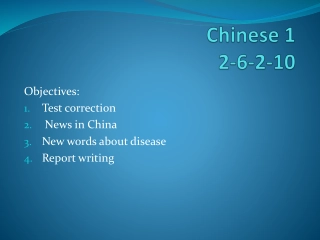
![READ⚡[PDF]✔ Emerging Space Powers: The New Space Programs of Asia, the Middle Ea](/thumb/21554/read-pdf-emerging-space-powers-the-new-space-programs-of-asia-the-middle-ea.jpg)

